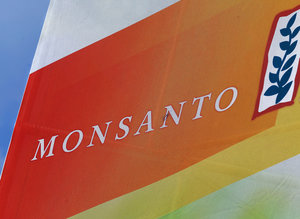
Lawyers for the plaintiffs want the court to lift a seal on documents that detail Monsanto's interactions and discussions with former top EPA brass Jess Rowland regarding the EPA's safety assessment of glyphosate, the active ingredient in Roundup. Monsanto turned the documents over in discovery but marked the documents "confidential," a designation plaintiffs' attorneys say is improper. They also want to depose Rowland. But Monsanto and the EPA are fighting both requests, the filings show.
The EPA has spent the last few years assessing the health and environmental safety aspects of glyphosate as global controversy over the chemical has mounted. The World Health Organization's International Agency for Research on Cancer (IARC) declared in March 2015 that glyphosate is a probable human carcinogen, with a positive association found between glyphosate and non-Hodgkin lymphoma. Monsanto has been fighting to refute that classification because of financial and legal liability ramifications.
Rowland has been key in Monsanto's efforts to rebut the IARC finding because until last year he was a deputy division director within the health effects division of the EPA's Office of Pesticide Programs, managing the work of scientists who assessed human health effects of exposures to pesticides like glyphosate. And, importantly, he chaired the EPA's Cancer Assessment Review committee (CARC) that issued an internal report in October 2015 contracting IARC's findings. That 87-page report, signed by Rowland, determined that glyphosate was "not likely to be carcinogenic."
The report was a godsend to Monsanto because it has helped bolster the company's defense against the Roundup liability lawsuits, and helped shore up market support for a product that brings in billions of dollars in revenues to the company annually. The EPA's stamp of approval for the safety of glyphosate has also been key to the success of Monsanto's genetically engineered, glyphosate-tolerant crops, which have been popular with farmers.
But the handling of the CARC report raised questions last year when it was "inadvertently" posted to a public EPA website on April 29, 2016, and kept on the site three days, before being pulled down. The agency said the report was not final and that it should not have been posted, but Monsanto touted the report as a public affirmation of its safety claims for glyphosate. The company also cited the report at a May court hearing in the Roundup litigation as a counter point to the IARC cancer classification. Shortly after the CARC report was removed from the EPA website, Rowland left his 26-year career at the EPA.
[…]
The EPA is a taxpayer-funded, public agency and its dealings with Monsanto should be subject to public scrutiny, particularly given the widespread use of glyphosate herbicide products and the current ongoing international debate over the safety of the chemical, the lawyers claim.
(From Carey Gillam, ecowatch.com, 1/18/17)
